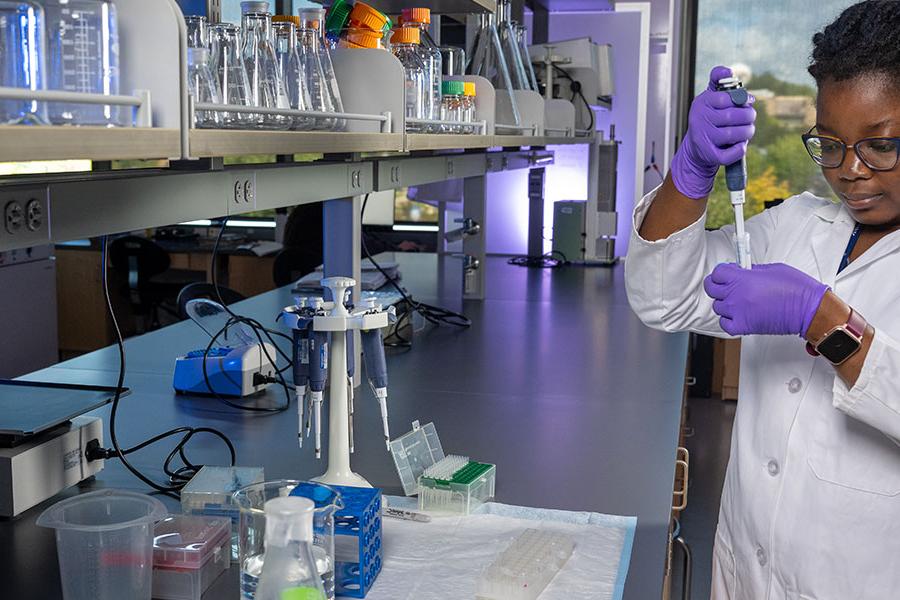Brain Health Research Institute

Laser-Focused: New Microscope to Benefit Kent State Researchers
Kent State University researchers are beginning to use a new high-tech microscope that will allow them to view the structure of cell tissue on a more intense level.

Laser-Focused: New Microscope to Benefit Kent State Researchers
Kent State University researchers are beginning to use a new high-tech microscope that will allow them to view the structure of cell tissue on a more intense level.

Working in Kent to Bring Innovation to Students in Brazil
Educators from Brazil visited Northeast Ohio institutions for inspirations in innovative teaching.

Brain Health Speaker Calls for Revolution in Treatment of Dementia Patients
A Cleveland-area researcher is calling for a rehabilitative approach, rather than a traditional medical approach, for the treatment of those with dementia.
Excellence in Undergraduate and Graduate Research Mentorship Awards
From Kent State University's Division of Research & Economic DevelopmentKent State University is pleased to announce the two winners of both the Excellence in Undergraduate Research Mentorship Award and Excellence in Graduate Research Mentorship Award. As part of the nominati…
All-Star Lineup of Neuroscience Alumni to Speak at Symposium
Kent State University’s Brain Health Research Institute (BHRI) will be welcoming a bevy of accomplished alumni back to the Kent Campus when it hosts the 10th Annual Neuroscience Symposium on Thursday and Friday, Oct. 27 and 28.

Kent State’s Brain Health Research Institute Hosts University of Wisconsin-Milwaukee Anthropology Professor
Ben Campbell spoke on the topic of how the production of the DHEA/DHEAS and GLUD2 hormones plays a role in brain development in humans and other species, a process known as “adrenarche.”

BHRI helps sponsor major international neuroendocrine conference
Kent State University’s Brain Health Research Institute recently helped sponsor and participated in the 4th World Conference on Kisspeptin, “Kisspeptin 2022”, which was held on August 5–6, 2022, in Glasgow, Scotland.Kisspeptin 2022 featured presentations of cutting-edge research from leading s…
Min-Ho Kim, Ph. D. and Woo-Yang Kim, Ph. D. Awarded for Research in Alzheimer’s Disease Treatments
Min-Ho Kim, Ph.D., associate professor of Biological Sciences, and Woo-Yang Kim, Ph.D., associate professor of Biological Sciences, have been awarded an NIH grant, a $1,876,627 five-year grant from the NIH’s National Institute on Aging, for their research in “Magnetothermal brain stimulation towards…